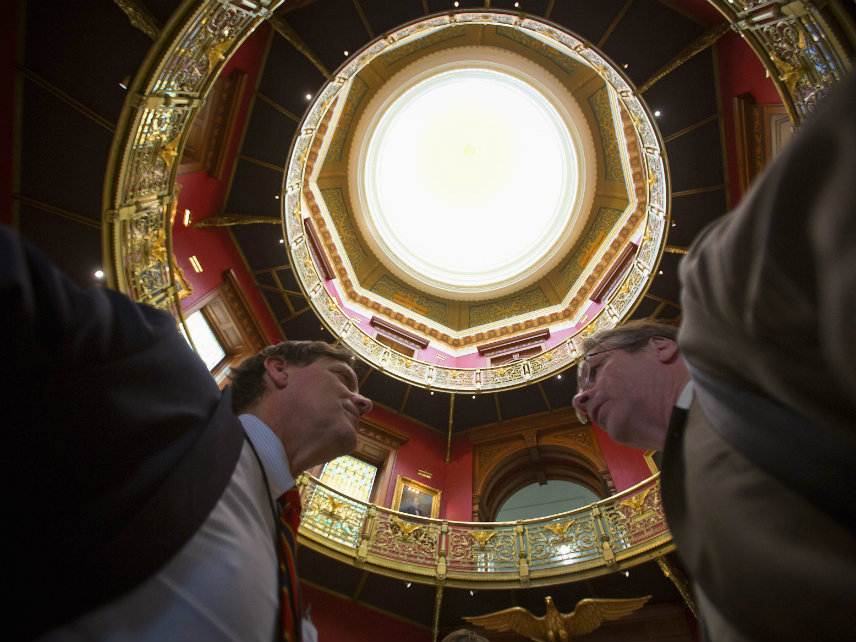New Jersey Could Legalize Weed Next Month
The one stumbling block remaining is a debate over how much of a cut the state should get.

New Jersey could become the 10th state to legalize the recreational use of marijuana, and it could do so before the end of next month.
State Senate President Steve Sweeney (D-Gloucester) tells Politico that there is enough support in the state legislature to pass legalization, even though the details are still being worked out and a bill has yet to emerge. Despite that lack of clarity, it seems like Sweeney, Assembly Speaker Craig Coughlin (D-Middlesex), and Gov. Phil Murphy are generally in agreement that recreational legalization and an expansion of the state's six-year old medical marijuana program should be top priorities for the fall.
"Don't be surprised when people who say they were against it vote for it," Sweeney says to Politico, seemingly an indication that he believes some Republicans will end up supporting the proposal too.
That won't necessarily be needed, since Democrats hold a 10-seat majority in the state Senate and control more than two thirds of the state Assembly. But GOP support for the bill would be a further indication that prohibitionist policies are losing their grip. A recent Monmouth University poll found that a majority of the state's voters back full legalization, and that 60 percent of them (and 50 percent of Republicans) believe legalization will boost the state's economy.
The last stumbling block to legalization may be a question about how to tax marijuana sales. Murphy, who promised last year to legalize marijuana if elected governor, used his first budget address to call for a 25 excise tax (on top of the state's 7 percent sales tax) on weed sales. The levy would generate an estimated $60 million annually. But Sweeney tells Politico that he'd favor a lower rate.
"If you tax it too high, you incentivize people to use the black market because you've raised the price too high," he says.
Sweeney has point. High marijuana taxes in Washington state have inflated the price of pot and kept the black market alive. The combined sales and excise tax of 32 percent would make New Jersey's marijuana taxes a bit higher than similar taxes in Colorado (which has a 15 percent excise tax and 15 percent sales tax), California (a 15 percent excise tax), Massachusetts (a 10.75 percent excise tax), and Oregon (a 17 percent excise tax), but lower than the 37 percent excise tax charged by Washington state. (Other states with legal recreational weed—including Alaska and Maine—apply taxes by weight at the wholesale level, making it difficult to compare to retail taxes.)
It's worth noting, as Murphy often did on the campaign trail last year, that legalization will allow the state to save some serious cash no matter how much revenue the new taxes generate. New Jersey currently spends about $140 million annually prosecuting some 24,000 low-level marijuana arrests a year.
Regardless of how it shakes out, the debate over how to tax legal sales of marijuana is a welcome one, since it signals a full retreat by the forces of prohibition. It was left on the committee room floor during the heated budgetary debates of New Jersey's spring legislative session, but now legalization may be just weeks away.


Show Comments (19)